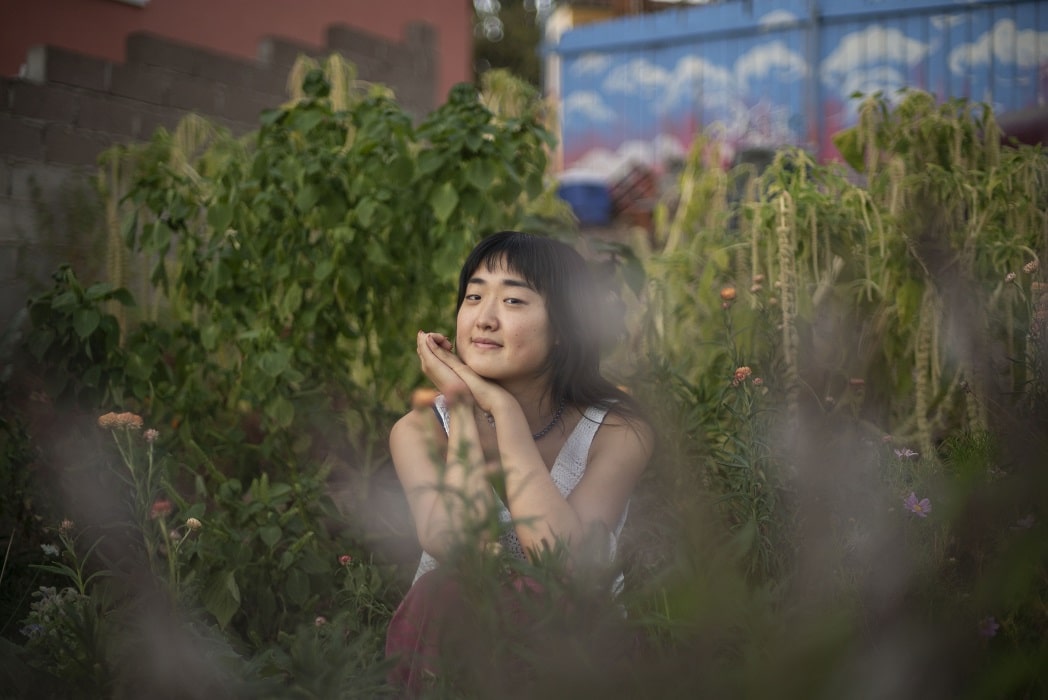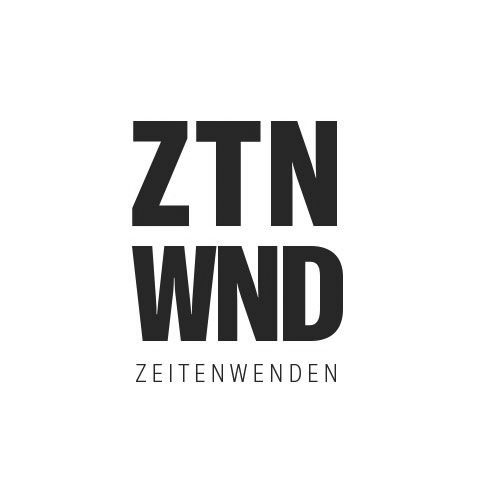A primarily digital project with manifestations in physical space, “rongin rhagor” addresses the interactions between European nations and the societies they colonise by addressing issues of identity, language, representation, displacement, migration, resistance and agency. The artistic responses will be shared both on- and offline, culminating in a digital platform launching this November and accompanied by a physical opening at the Neukölln cultural centre “Oyoun” in Berlin. rongin shagor/রিঙন সাগর , translated from Bengali as “multicoloured ocean”, is an interdisciplinary artistic dialogue that begins with a poem by May Ayim and continues digitally with artistic contributions from you.
Image above: Alice Yuan Zhang, Photo Tara Violet Niam
Referencing the seminal book – edited by Afro-German women under the editorial direction of May Ayim and Katharina Oguntoye – “Bekennen Farbe” (1986), this dialogue is an interactive approach that weaves together artistic responses of all kinds. In the process, our voices, memories and visions are kept in flux as we explore the ocean and water as crucial carriers of memories and futures and as a force that shapes the realities of cultures, environments and people.
On 13 November 2022 at 6pm, the makers invite you to a personal presentation of the digital platform rongin shagor and selected works by artists who will respond to the poem “Community” by May Ayim as part of the project. The event will open with a performance by Oxana Chi & Layla Zami. There will then be time to listen to, engage with and view the work of the selected artists from rongin shagor.
The digital platform will also be available from 13 November 2022 via www.ronginshagor.com.
Timetable
05.30 p.m. | Admission
06:00 p.m. | May Ayim’s Wor(l)ds-Making
Input talk, poems, music by Layla Zami
Followed by Killjoy | dance, choreography, sound by Oxana Chi.
Creative reflections on the themes of home, belonging, racism and resilience with May Ayim
06:30 p.m. h | rongin shagor – selected artists
08.00 p.m. | May Ayim Vortex von Poetry Meets x rongin shagor
08:45 p.m. | DJ Set by Nara + fade out
Biographies
Alice Yuan Zhang 张元 (b. Dalian, China)is a media artist, cultural organiser and first-generation immigrant, living between Los Angeles and Berlin. Her transdisciplinary practice works with cyclical and intergenerational time. Working at the edges of the colonial imagination, she brings technology to earth by developing collective experiments in ancestral memory, cross-species pedagogy and networked solidarity.
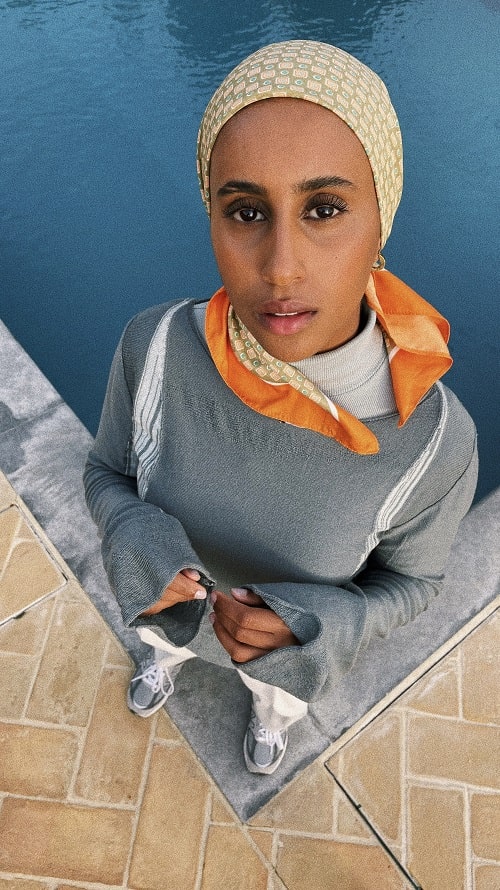
Amira Zarari
is the daughter of Yemeni-Eritrean parents, one of five sisters, and was born and raised in Germany. Even at a young age, she was creative in many ways. Inspired by the US poetry format Def Poetry Jam, she started writing poems and performing them on stage at the age of 16. Her poems reflect her reality as a black Muslim woman living in Germany. After a rejection at a art school, she began studying Middle Eastern Studies at the University of Hamburg, which she is currently completing. She has a great passion for music, interiors and coffee. Her dream and vision is to unite these passions one day.
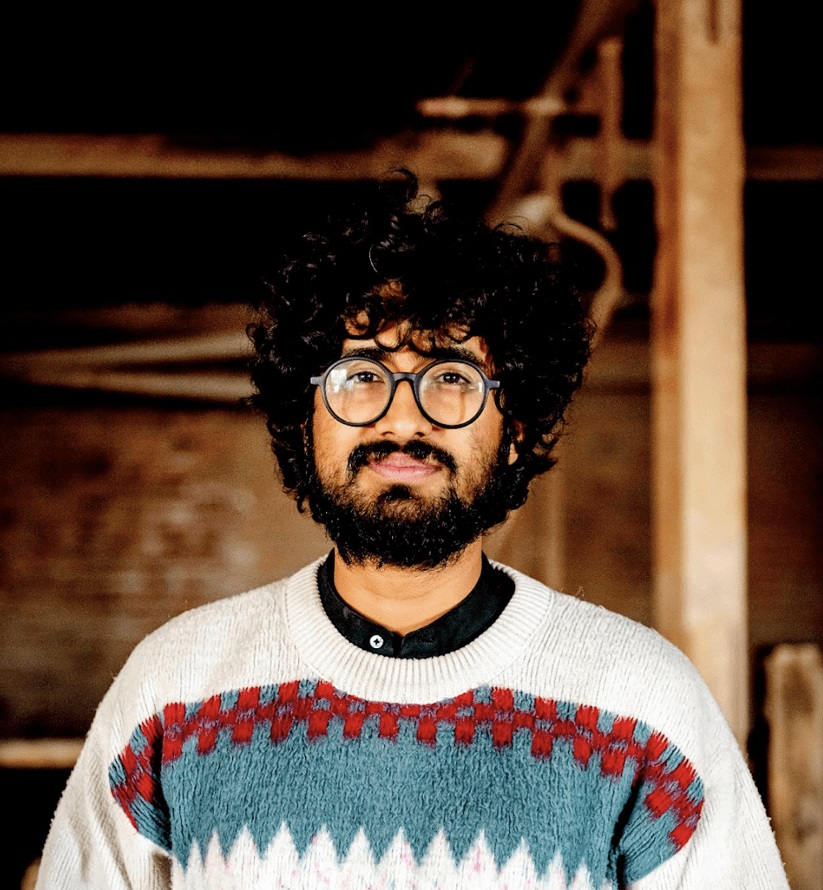
Arijit Bhattacharyya (b. 1994, Bally) is an artist and independent curator currently living and working in Germany. His practice revolves around contested narratives of resistance through social engagement, design interventions, large murals and lecture-performances. His artistic discourse is deeply rooted in an engagement with socio-political history and its impact on cultural practices. As a curator, he is involved in artistic negotiations that explore methods of social disobedience
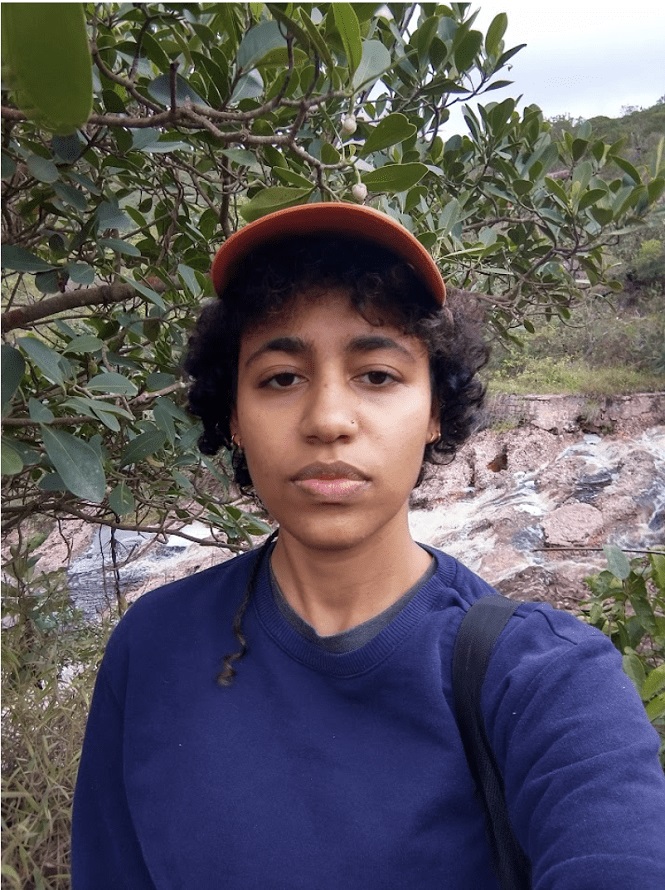
Bruna Barros (or Mercúrio)
is a multidisciplinary artist and translator. Through literature, translation, cinema and visual arts, Bruna creates narratives of affection. Together with Jess Oliveira, she forms the translator-artist duo cocoruto. Bruna believes in the importance of talking about oneself and the importance of storytelling. As a poet, they were featured in the anthology Poetas Negras Brasileiras edited by Jarid Arraes. As a filmmaker, she wrote and directed the short film “Amor de Ori” (2017) and co-wrote and co-directed the short documentary “à beira do planeta mainha soprou a gente” (2020), which was nominated for the Grande Prêmio do Cinema Brasileiro 2021 in the short documentary category.
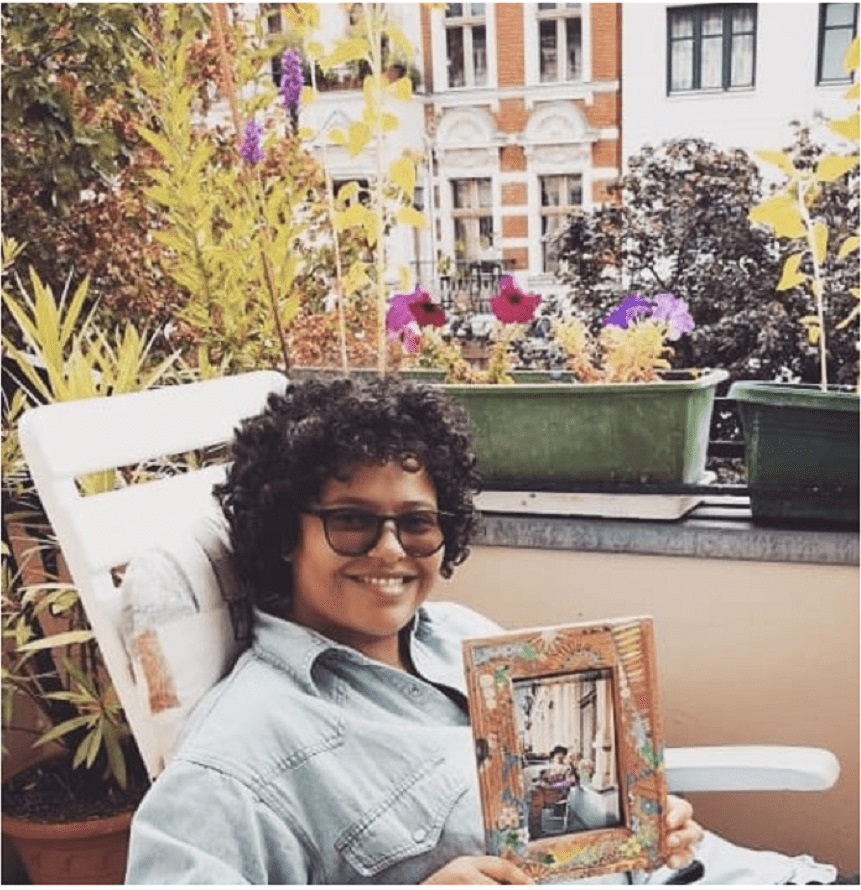
Jess Oliveira
is a translator, researcher, poet, member of the Black Atlantic Translation Research Group (UFBA, Brazil) and member of the translation-art duo cocuruto with Bruna Barros. Currently a PhD candidate in Literature and Culture (UFBA), with a CAPES/DAAD research fellowship (2021-2022) at the University of Bayreuth. In 2019 and 2020, she was part of the artist residency “Rethinking the Aesthetics of the Colony” in Johannesburg (South Africa) and the platform of the same name for translation studies and political imagination in the diaspora. In 2020, she was nominated for the 62nd Jabuti Award in the translation category.
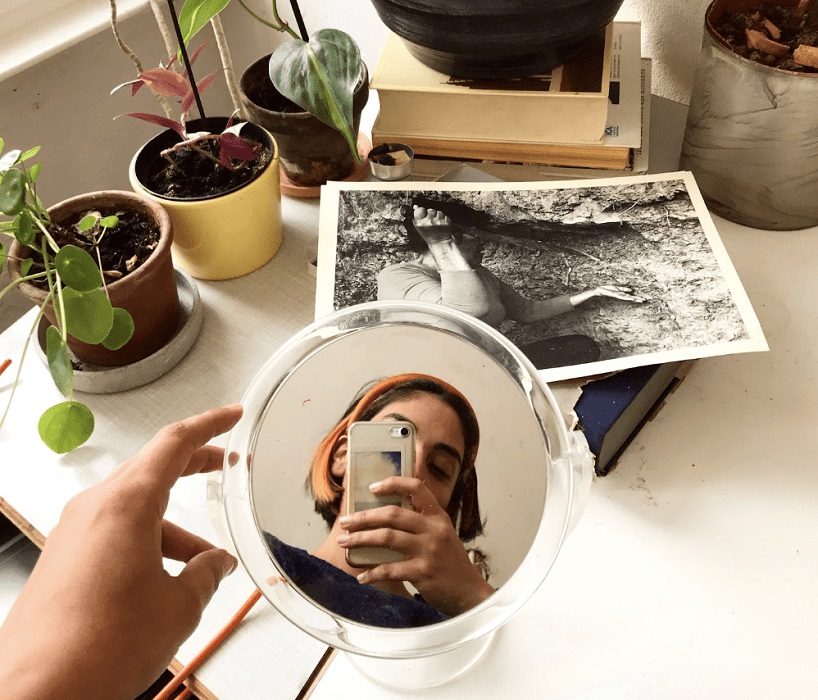
Carla Abilés
was born in Salta, Argentina, and now lives in Berlin. She is part of a family with a strong migration history from her place of origin. She works with poetry, installations, photography, painting and embroidery on different supports such as paper and also on the skin as part of an exploration through analogue tattooing techniques. Her work deals with the idea of power relations and the intersection of migration, feminism, technology and brown culture
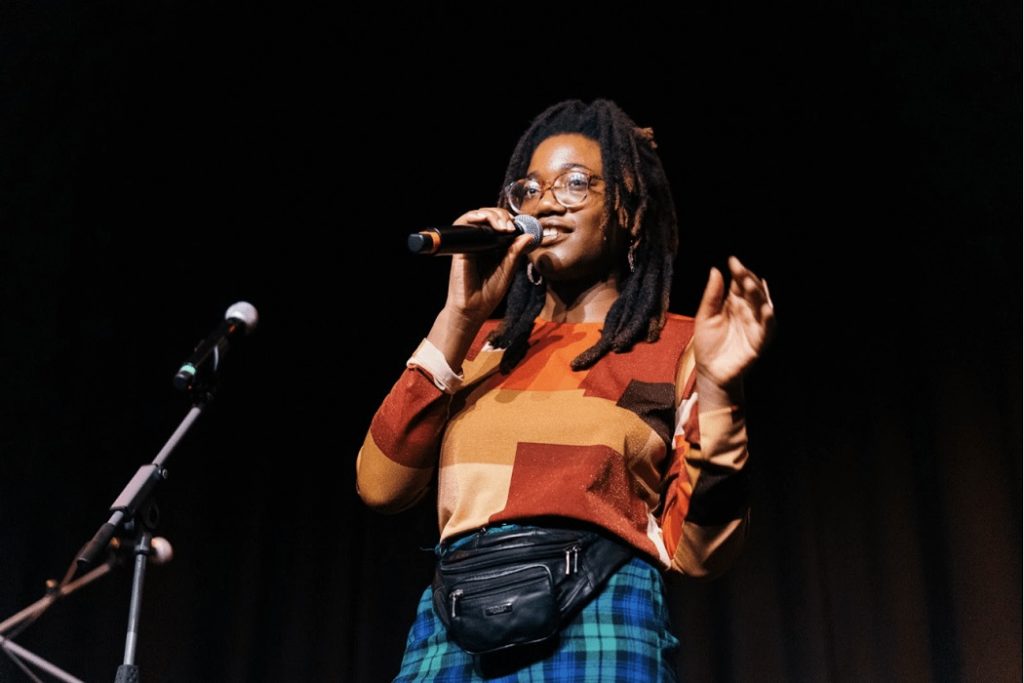
Jumoke Adeyanju
is an interdisciplinary, multilingual writer, curator and dancer. Under her pseudonym mokeyanju, she occasionally performs as a vinyl selector and emerging sound artist. Jumoke is the founder of the Poetry Meets Series [est. 2014], co-curator of Sensitivities of Dance at SAVVY Contemporary and hosts her own radio show Sauti ya àkókò on Refuge Worldwide. She has presented her artistic work at international literary festivals, performing in English, German, Kiswahili and Yorùbá….

Ozan Zakariya Keskinkılıç
is a political scientist, freelance author and poet. He studied in Vienna and Berlin and teaches and researches at universities in Berlin. In 2021, he was appointed as a member of the expert commission against anti-Muslim racism in Berlin. In the same year, he published “Muslimaniac. The Career of an Enemy Image” in the Edition Körber. In addition to academic texts, Keskinkılıç writes essays, prose and poetry. His poems are published in literary journals and anthologies in Germany, Austria and Switzerland. He received an award from the Academy for Spoken Word for the cycle “jetzt nicht an gog und magog denken”. His poetry debut “prinzenbad” will be published by ELIF Verlag in August 2022.
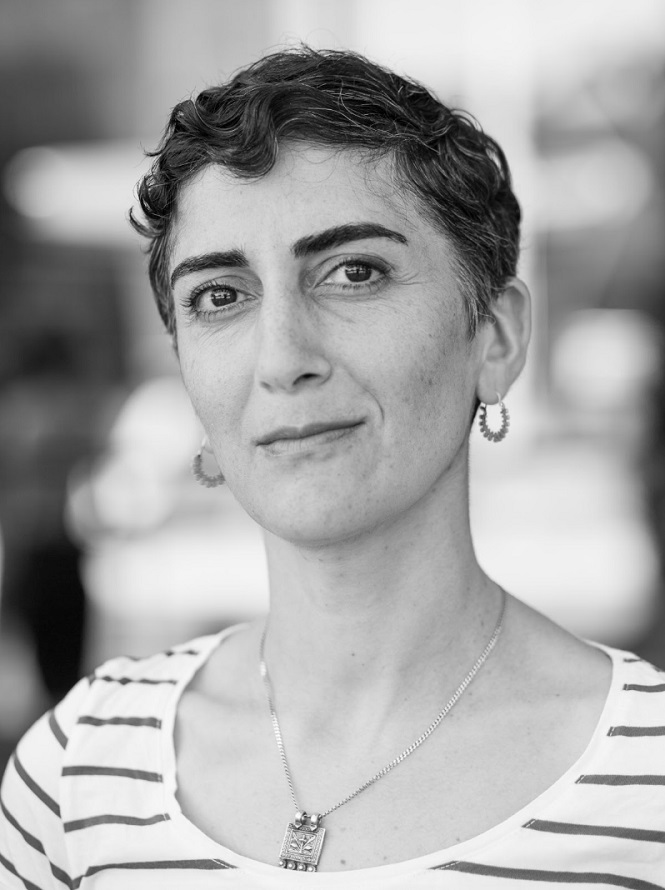
Sara Ehsan
is an Iranian author who lives in Karlsruhe. Her focus is on poetry, short prose and plays. Her work has been published in four volumes of poetry and in numerous literary journals and anthologies. It has been translated into English, Swedish and Serbian. Sara also works as an interpreter/translator and anti-discrimination counsellor. She gives writing workshops for BIPoC women and students.
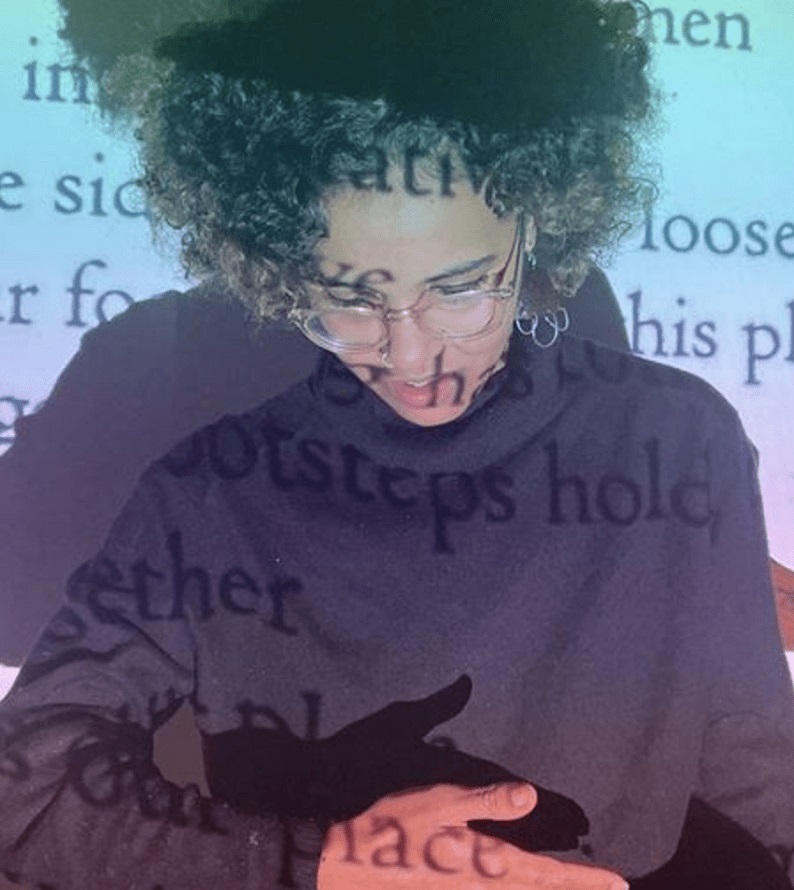
Kondo Heller (she/they)
is a Kenyan-German poet, writer and experimental filmmaker. Kondo is a Barbican Young Poet 18/19, Obsidian Foundation Fellow, Ledbury Critic and Image Text Ithaca Junior Fellow. Currently, Kondo is particularly interested in static sound as a portal of memory, community and archive. Kondo is currently studying for an MFA in Poetry at Cornell University.
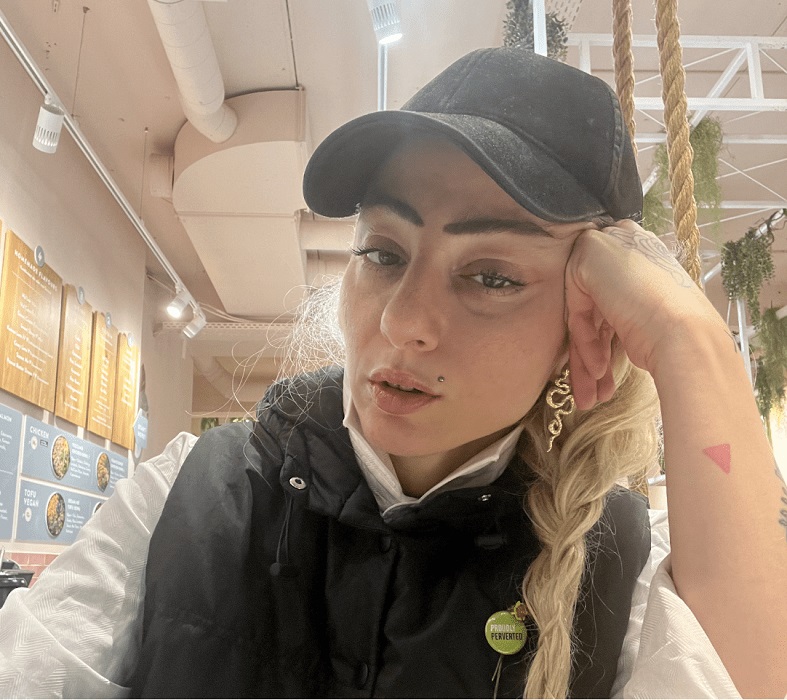
Leman Sevda Darıcıoğlu (Berlin & Istanbul)
is an artist who works mostly in the field of performance art. Darıcıoğlu mainly makes long-lasting live performances, but also videos, installations and public interventions. In the performances Darıcıoğlu explores the physical/emotional boundaries, limitations and potentials of the body. Based on this corporeal approach, Darıcıoğlu is interested in chronopolitics and necropolitics from a perspective that focuses on the vulnerability and strength of marginalised bodies. Darıcıoğlu works on queer appropriation methods of the past and the present from a non-Western perspective and develops bodily strategies to address the history of minority groups excluded from hegemonic history.
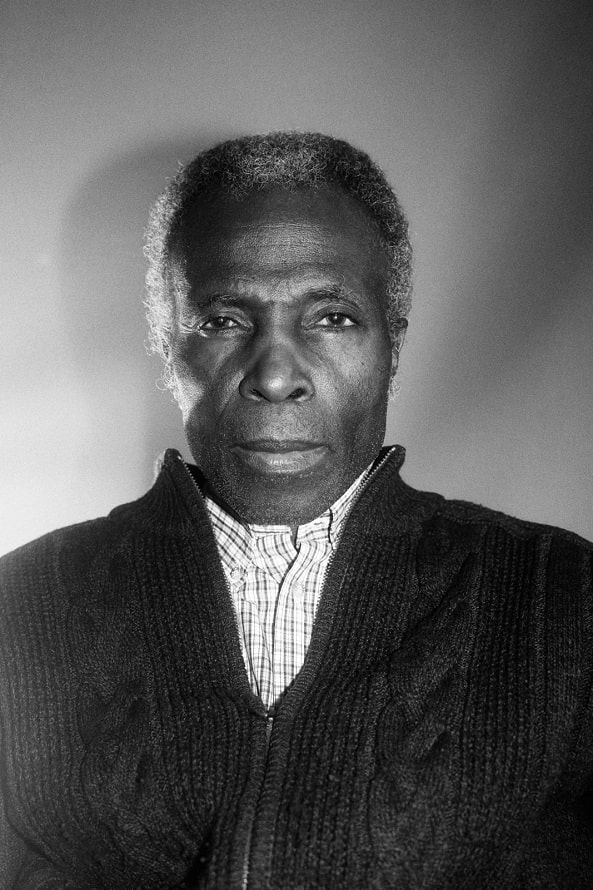
Akinbode Akinbiyi
was born in Oxford, England, to Nigerian parents. He went to school in Nigeria, England and Germany and studied English (B.A.) at the University of Ibadan. Akinbode has worked as a freelance photographer since 1977. In 1987, he received a STERN reportage scholarship to work in the cities of Lagos, Kano and Dakar. In 1993, Akinbiyi co-founded UMZANZSI, a cultural centre in Clermont Township in Durban, South Africa. Akinbiyi’s photographic focus is on large, sprawling megacities. He wanders and meanders the highways and byways to understand and engage with the modern metropolis. He wanders and works primarily in and on the four major African cities of Lagos, Cairo, Kinshasa and Johannesburg, but also roams other major cities such as Khartoum, Addis Ababa, Dakar and Bamako, to name a few. European, North and South American cities are also important destinations: he recently visited Sao Paulo and Chicago in 2019.
The project rongin shagor রিঙন সাগর
Oyoun’s latest artistic intervention “rongin shagor রিঙন সাগর”, which owes its name to the Bengali words for “many-coloured ocean”, reflects on cultures of memory by connecting a group of individual artists with the work of the Afro-German poet May Ayim. The experience of colonialism forces a culture to explore, retrace and reweave threads of cultural formations anchored in oppressed bodies. But how do we remember? What is the role of spoken and visual language? And how does our history shape our actions today? Over the next few months, several multidisciplinary and multilingual artists* will respond to the poem “Community” by May Ayim. This participatory project, which takes the form of a virtual artistic chain letter, will create a hub of knowledge through art and make it accessible to a wider community. The artistic responses will be shared both on- and offline, culminating in a digital platform that will launch on 13 November and be accompanied by a physical opening at Oyoun in Berlin.
rongin shagor রিঙন সাগর translates from Bengali as “many-coloured ocean” – the ocean as a carrier of memories: How our bodies are carriers of memories, which puts us in direct relation to bodies of water.
“Will you remember to keep us afloat?” – again poses a question to the ocean that gives and takes away, creating a parallel to how and who shapes memory in our world. Who stays afloat and is reminded that she/he stays afloat? Who is swallowed up by the tides and forgotten?
Based on a poem by the Afro-German poet May Ayim, Oyoun’s new artistic intervention “rongin shagor” reflects on cultures of memory by exploring the reflective and generative threads of cultural formations that lie in the senses of the oppressed body. Tracing and reweaving these threads is the ceaseless task of cultures that have been subjected to colonialism. Collective memory emerges from language, and patterns of collective memory influence language as socially and culturally shared narrative genres. The project seeks to create a constellation of remembering by interweaving cultural responses and transnational dialogue. This multimodal space creates a rupture between voice and silence, the oral and the visual, and is an attempt to ensure the survival of sensory cultures in today’s world.
In the form of a virtual artistic chain letter, “rongin shagor” explores the concept of lore by engaging others in discourse about how our history shapes our actions today. A range of multidisciplinary and multilingual artists will respond to the poem “Community” by May Ayim, a thought leader and key figure in the Afro-German movement who shaped it until her far too early death in 1996.
“rongin shagor – the many-coloured ocean” – thereby symbolises the diversity of poetic and artistic interpretations and inspirations that emerge from a poem. They drift, embark, collide and stay afloat – all in one and the same place, each marking approaches to different struggles in identity politics. Dreams, visions and associative imagination of poetry are reinforced by a collective growth of individual artworks that build on each other – starting with May Ayim’s poem mentioned above. The responses of interdisciplinary artists to this work will shape “rongin shagor” and pave the way for further participation.
The erasure caused by the colonial era – with the parallel narrative of the pandemic – challenges us to face the realities of loss, loss of connection, loss of oral tradition, loss of ritual, loss of loved ones, loss of physical touch, loss of justice. With all this loss, there is a need to create a shared space to make visible and audible the challenges faced by different diaspora communities in Berlin and beyond. This participatory online project will seek to create a hub of knowledge through art and make it accessible to a wider community to engage in discourses over time.
The project “rongin shagor” is being developed within the framework of “dive in. Programme for Digital Interactions” of the Federal Cultural Foundation, funded by the Federal Government Commissioner for Culture and the Media (BKM) in the NEUSTART KULTUR programme and the Senate Department for Culture and Europe.
WHEN?
Sunday, 13 November 2022, from 5:30 pm (doors open)
COSTS?
Entrance free
WHERE?
Oyoun
Lucy-Lameck-Straße 32
12049 Berlin-Neukölln


